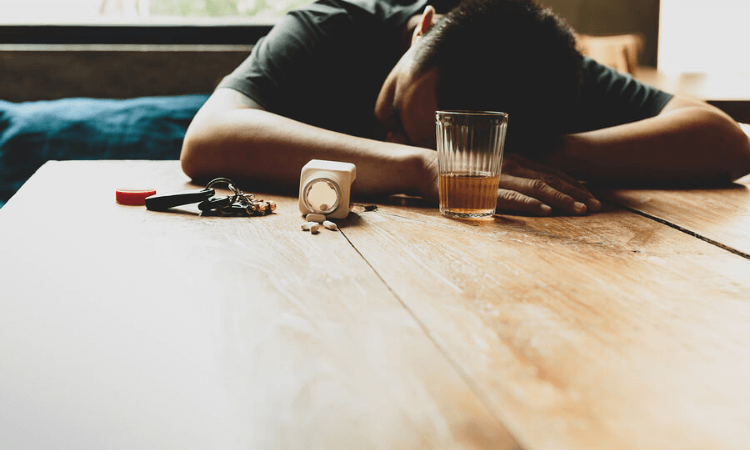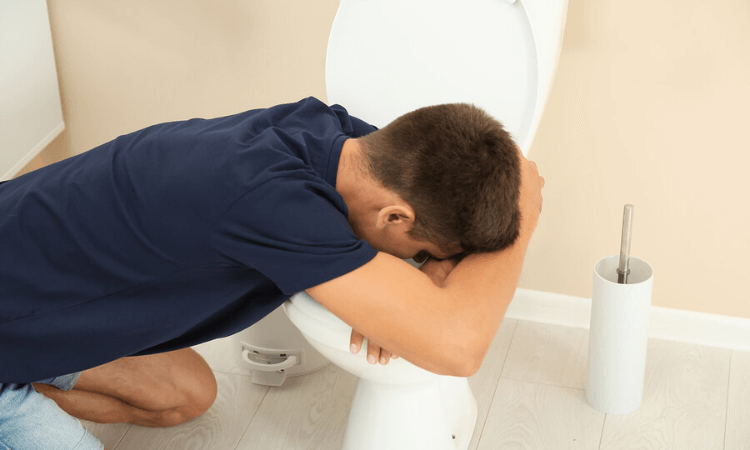
Muscle Relaxers and Alcohol – Muscle relaxers and alcohol can be a dangerous combination that can induce profound sedation, impaired cognition and motor function, dependence, and accidental death. A person who uses these two substances faces an increased risk of respiratory depression and overdose, falls and injuries, car accidents, and seizures.
Both muscle relaxers and alcohol depress or slow down activity in the body’s central nervous system (CNS). This action can result in numerous complications and risks, and it is never recommended that the two be combined.
What Are Muscle Relaxers?
Muscle relaxers (spasmolytics) are prescription drugs that affect muscle function and decrease muscle tone. They may be used to alleviate symptoms such as muscle spasms, pain, and hyperreflexia, and to reduce spasticity in a variety of neurological disorders. They can aid a person in having greater mobility, and, for some, provide relief from insomnia that results from these ailments.
Muscle relaxers can provide relief from sprains, strains, and other muscle injuries. The effects of muscle relaxers are induced by depression of the CNS and thereby relaxing and reducing activity in the muscles.
Muscle relaxers are not typically prescribed as a first-line defense for chronic concerns, such as low-back pain, due to their potential for abuse, dependence, and side effects. Rather, they are most effective when used for short-term acute injuries and the like.
One of the most frequently abused muscle relaxers is carisoprodol (Soma). However, many others are also misused and include cyclobenzaprine (Amrix), dantrolene (Dantrium), metaxalone (Skelaxin), methocarbamol (Robaxin), and tizanidine (Zanaflex).
Side Effects
The side effects of muscle relaxer will vary somewhat between medications and from person-to-person, but in general, they include the following:
- Depression
- Drowsiness
- Dizziness
- Impaired motor skills
- Fatigue and weakness
- Impaired thinking
- Hypotension
- Nausea
- Vomiting
- Accelerated heart rate
- Vision problems
- Rash
Muscle relaxers can also make it hard for a person to remain alert and think coherently, causing impairments to thought processes and decision-making abilities.
When used correctly as directed by a doctor, muscle relaxers are generally considered to be safe. However, when taken in conjunction with alcohol or other drugs, they can have dangerous and sometimes life-threatening effects.

Alcohol Abuse
Although alcohol use might initially make people feel more talkative and energetic as the result of an increase of dopamine in the brain, this effect is only temporary. When consumed in excess, alcohol can significantly slow down activity in a person’s brain and body and impair their ability to function properly.
Alcohol abuse can result in the following:
- Stomach pain
- Impaired vision
- Anxiety
- Confusion
- Depression
- Dizziness
- Impaired judgment
- Impaired cognition
- Impaired motor skill
- Poor coordination
- Nausea and vomiting
- Impulsivity
- Poor decision-making
- Impaired memory
- Sedation
Many of these effects are comparable to those related to muscle relaxer use, which is the primary reason it is so risky to combine these drugs, as central nervous system depression is amplified.
Why Do People Mix Muscle Relaxers and Alcohol?
Muscle relaxers can induce feelings of relaxation and mild euphoria, effects which have led some to misuse their own prescription or someone else’s. Some people may also use these drugs as a means to self-medicate, to induce sleep, or to relieve unpleasant symptoms associated with alcohol withdrawal. The risks associated with this use may occur unknowingly, as a person consumes one substance in close time-proximity to the other.
These effects may happen when a person is using a muscle relaxer as prescribed and drinks alcohol with it, without realizing the potential adverse interactions. It can also occur if a person has a drink a short time later before the medication has cleared from their system. The effects of most muscle relaxers last around 4-6 hours, so even if a person begins drinking a few hours after they take their medication, it will still be in their system.
Muscle relaxers can be extremely potent, and having just one drink in succession can cause uncomfortable and dangerous side effects. Any combination of these substances can be dangerous. Still, people may face more severe risks when they intentionally misuse both drugs together to create a more intense pleasurable effect.
When deliberately setting out to abuse a drug, a person is far more likely to use a medication in large dosages. This means that they may take doses in excess of those prescribed or recommended or take them more often. These behaviors increase the risk of overdose, dependence, and other adverse health consequences.
The Risks of Mixing Muscle Relaxers and Alcohol
The CNS depression and sedation induced by muscle relaxers can become dangerous when amplified by the effects of other intoxicating substances, alcohol included.
The National Institute on Alcohol Abuse and Alcoholism (NIAAA) reports that using alcohol with muscle relaxers may cause the following adverse reactions:
- Drowsiness
- Dizziness
- Slow or labored breathing
- Increased risk of seizures
- Increased risk of overdose
- Loss of consciousness
- Impaired motor control
- Unusual behavior
- Memory impairments
One of the biggest risks of this combination is profound motor impairment and loss of coordination and equilibrium. Together, the combined use of muscle relaxers and alcohol can make it challenging for a person to walk and balance. This effect can cause a person to fall, especially if compounded by dizziness and impaired vision.
Injuries that result from this effect can be very serious and even life-threatening. Motor impairment also makes it very hazardous to operate heavy machinery or a motor vehicle. Even when they are used separately, these substances impair a person’s reaction time, judgment, decision-making ability, and cognition.

When muscle relaxers and alcohol are used in conjunction, though, these effects may become even more pronounced and intense. This consequence can jeopardize the well-being of a person operating a vehicle or heavy machinery, as well as that of those around him or her. The profound sedation and respiratory depression that results from the use of these two drugs puts an individual at a heightened risk of overdose, a circumstance that requires emergency medical assistance.
The Drug Abuse Warning Network’s (DAWN) findings reported that nearly one in five emergency room visits related to the abuse of muscle relaxers also involved the use of alcohol. Overdose from alcohol and muscle relaxers can result in death, and if you suspect that you or a loved one is overdosing, please call 911 immediately.
Muscle relaxants have the potential for addiction, as does alcohol. Abusing either of these substances places an individual at risk of addiction, but abusing them together increases this risk even further.
When a person abuses one substance, their ability to reason and think properly is compromised, which makes it more likely that they will abuse another drug and use it in higher quantities. Again, these are behaviors that increase the risk of developing an addiction.
Treatment for Drug and Alcohol Abuse
There are many potential dangers and risks associated with using Suboxone and alcohol for a prolonged period—or even just using them in conjunction occasionally. People who have been prescribed Suboxone as an opioid replacement and drink alcohol while taking it may sabotage their recovery and incur many severe long-term consequences.
Recovery in Tune offers intensive outpatient treatment for those struggling with substance use disorders. We employ highly-trained, compassionate addiction specialists who are dedicated to providing our clients with the knowledge, tools, and support they need to achieve a full recovery, avoid relapse and foster long-term wellness and sobriety.
We offer therapeutic services clinically proven to be vital to the recovery process, including psychotherapy, counseling, and group support. These services are delivered by our professional staff with care and expertise.
If you or someone you love is abusing Suboxone either alone or with alcohol or other drugs, please contact us as soon as possible. Although addiction is not necessarily curable, it is certainly treatable. Therefore, we can help anyone who is motivated to free themselves from its grips and begin to enjoy the healthy and satisfying life they deserve!